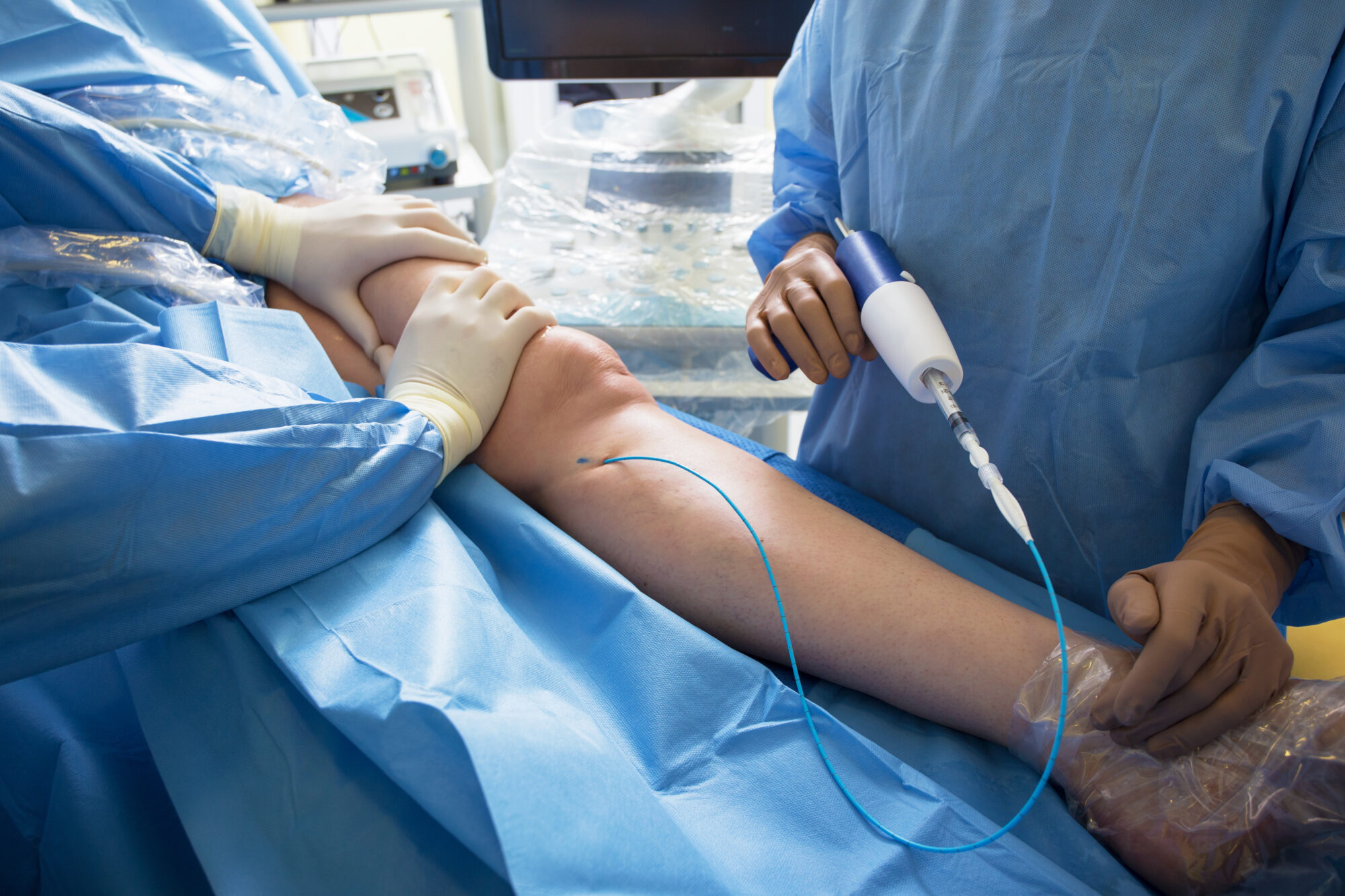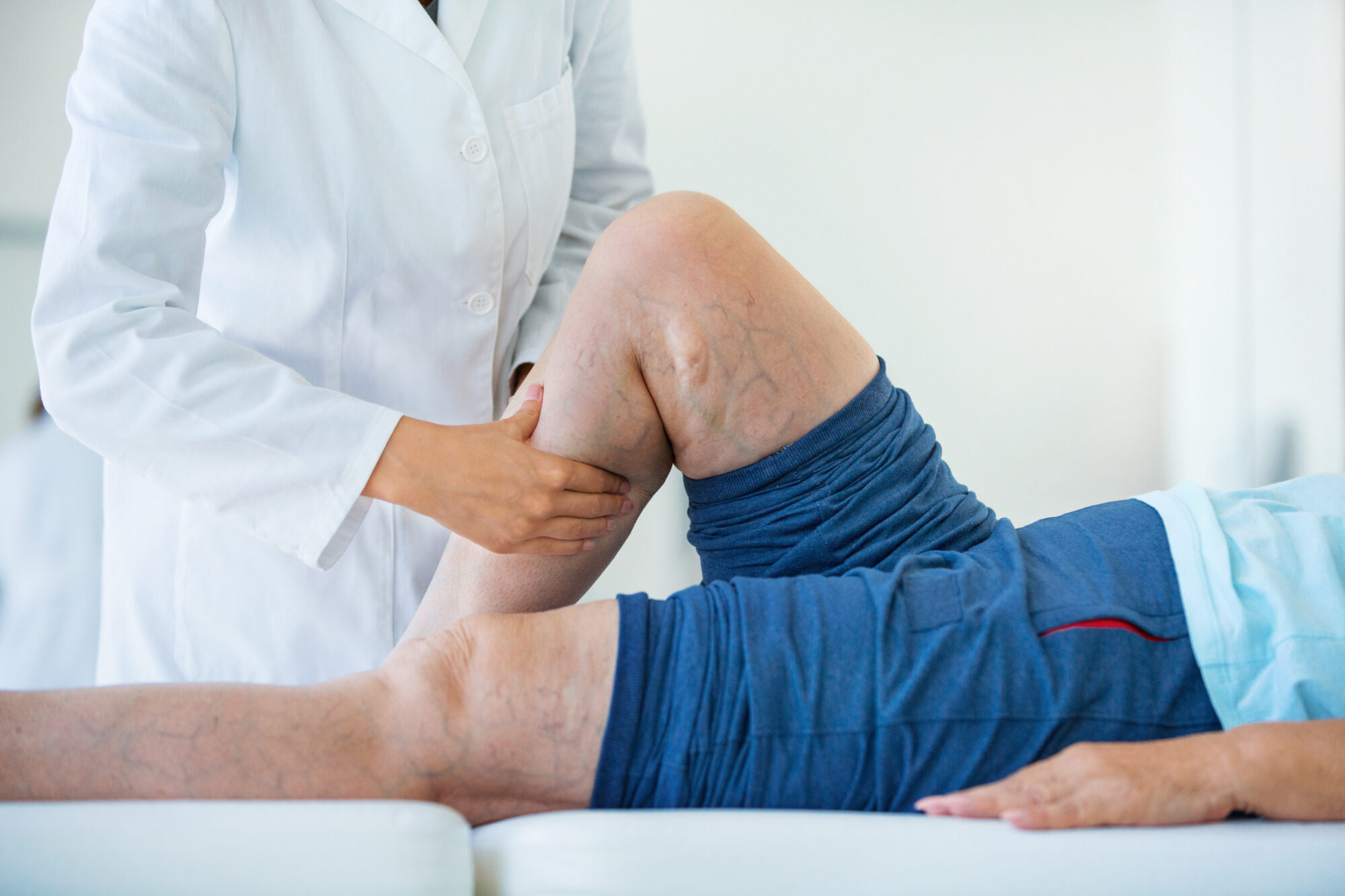Vascular Center
Peripheral vascular disease includes peripheral arterial disease (PAD), chronic venous insufficiency (CVI), renal artery disease, carotid artery disease, and aortic aneurysms. PAD alone affects more than 12 million Americans and is increasingly recognized as an important cause of cardiovascular morbidity and mortality. PAD shares its risk factors with coronary artery disease and is considered a cardiovascular disease equivalent. CVI affects more than 25 million adults in the United States with an estimated prevalence of up to 30% of the adult population suffering from venous symptoms, including lower extremity edema, lower extremity pain and discomfort, varicose veins, restless legs, cramping, tingling or burning in legs, bleeding episodes from bulging veins, recurrent cellulitis, phlebitis, and/or venous ulcers. These symptoms, which often go underdiagnosed, may significantly reduce quality of life in our patients.
The Vascular Center at Consulting Cardiologists is at the forefront of diagnostic and treatment solutions for vascular pathology. Led by expert Dr. Zain Ahmed, we provide a wide range of diagnostic testing and therapies to diagnose and treat patients with peripheral vascular disease. We work closely with primary care doctors and providers, vascular surgeons, cardiologists, podiatrists, radiologists, physical medicine and rehabilitation providers, and other specialists in vascular medicine to ensure comprehensive care.

Vascular Services Offered
Dr. Ahmed offers expertise in vascular diagnostic testing and endovascular and minimally invasive techniques. He provides consultative care for vascular pathology and medical management of peripheral vascular disease.

- Vascular diagnostic imaging and testing, including:
- Ankle brachial index (ABI) and duplex arterial ultrasound to diagnose peripheral artery disease
- Duplex venous ultrasound to assess for deep vein thrombosis (DVT) and venous insufficiency
- Duplex carotid ultrasounds to assess for carotid artery stenosis
- Renal artery duplex ultrasound to assess for renal artery stenosis
- Abdominal ultrasounds to assess for aortic abdominal aneurysms (AAA)
- Treatments:
- Peripheral angiograms with intervention for patients with PAD
- Vein ablations for symptomatic chronic venous insufficiency
- Venograms with venous stenting for iliofemoral obstruction/ May-Thurner syndrome
- Interventions for DVTs
- Renal angiograms with intervention
Dr. Ahmed welcomes the opportunity to partner with local physicians and providers throughout the state who have patients suffering from peripheral vascular disease. He values ongoing communication and can be easily reached by providers. He is also available via TigerText for providers in the Hartford Healthcare and Trinity Health systems.
Consultations are primarily conducted in our Glastonbury and Wallingford offices, which offer easy parking and accessibility. Diagnostic vascular testing can be performed in our Glastonbury, Avon, Wallingford, or Hartford offices. Procedures may be performed in the office, at Hartford Hospital (Hartford Healthcare), or at St. Francis Hospital (Trinity Health).
We offer a dedicated phone line for vascular referrals: (860) 947-4322.
Meet Our Vascular Specialist: Zain Ahmed, MD, MPH, MS

Dr. Ahmed is the Director of the Vascular Center at Consulting Cardiologists, PC. He is an interventional cardiologist who specializes in coronary and peripheral vascular interventions. He did his medical training at the Cleveland Clinic program of Case Western Reserve University School of Medicine along with a prestigious medical research fellowship at Harvard Medical School in heart transplantation. He completed his residency in Internal Medicine at Brown University in Rhode Island and then completed clinical fellowship training at Yale School of Medicine and Yale New Haven Health. He ultimately completed three cardiology fellowships at Yale in the areas of Cardiovascular Medicine, Advanced Interventional Cardiology – Peripheral Vascular & Endovascular Interventions, and Interventional Cardiology.
In addition to his medical doctorate, Dr. Ahmed has multiple master’s degrees, including a Master of Science (MS) degree in Biomedical Investigation as part of the Clinical Research Scholars program at Case Western Reserve University School of Medicine, and a Master of Public Health (MPH) in Clinical Epidemiology from Harvard School of Public Health. He currently serves as an Assistant Clinical Professor in the Department of Internal Medicine of the Frank H. Netter MD School of Medicine at Quinnipiac University.
Dr. Ahmed welcomes the opportunity to partner with local physicians and providers throughout the state who have patients suffering from peripheral vascular disease.

Benefits of the Vascular Center at Consulting Cardiologists
- Patients with peripheral vascular disease are at higher risk for cardiovascular morbidity and mortality including heart attack and stroke. We offer the opportunity for patients to have their vascular and cardiovascular care provided by the same physician in a comprehensive and compassionate manner.
- Led by a fellowship-trained, highly regarded expert in the field of cardiovascular medicine, peripheral vascular and endovascular interventions, we provide high quality care to our patients using evidence-based medicine.
- Vascular referrals will be scheduled in a timely manner for consultation and appropriate diagnostic testing and imaging. Urgent referrals can be accommodated.
- We offer a direct line for scheduling vascular referrals.
- Access to the most advanced minimally invasive arterial and venous treatment options and modalities.
- Venous and vascular treatments are covered by most insurance plans, including Medicare and Medicaid.
- Office-based vein ablations and minimally invasive endovascular treatments in an outpatient hospital setting entail little to no downtime.
- This service line is part of Consulting Cardiologists, a leading cardiology practice in the state.